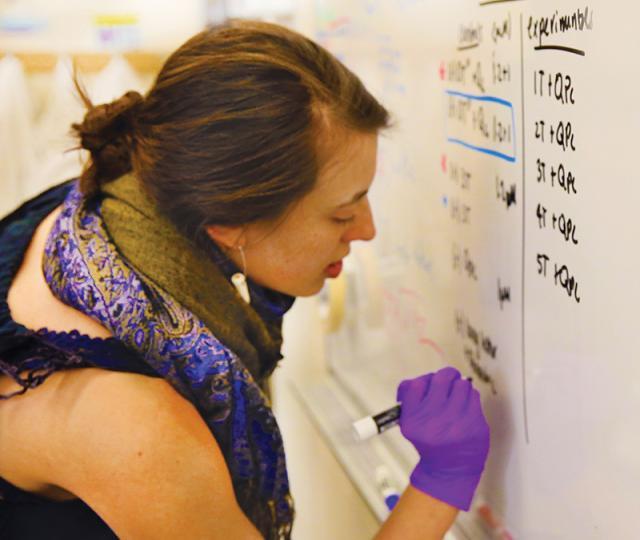
Ian Spalter 94F
Ian Spalter 94F has been named one of Forbe's most creative people, and has held UX and design positions at tech giants such as Foursquare and YouTube. Currently, he's head of Instagram Japan.
See what you'll do with a Hampshire education.
We’ve seen what can happen when you’re the entrepreneur of your own education. The possibilities are endless.
65% of alums earn advanced degrees within ten years of graduating
85% of students complete at least one internship or similar activity
1 in 4 of our graduates start their own business or nonprofit
TOP 3% of the nation’s colleges whose graduates go on to earn research doctorates
9 in 10 alums receive a job offer within six months of graduating
100% of students complete Campus and Community-Engaged Learning that combines academics with impact on campus, locally, or globally

Ian Spalter 94F has been named one of Forbe's most creative people, and has held UX and design positions at tech giants such as Foursquare and YouTube. Currently, he's head of Instagram Japan.

Nicole DelRosso 12F came to Hampshire to study sculpture. She left as the winner of a Fulbright, sculpting a nanoscale motor to work inside human cells to treat diseases and monitor health. She’s now pursuing a Ph.D. in biophysics at Stanford University.

Greenleaf is a neuroscientist and digital medicine expert known internationally as an early pioneer in the medical application of virtual environment technology. He is a distinguished visiting scholar at Stanford University's MediaX Program and Virtual Human Interaction Lab.
Hampshire College ranked as the #8 best liberal arts college in Massachusetts by Academic Influence. The ranking system by Academic Influence uses artificial intelligence technology to search massive databases and measure the impact of work by individuals who’ve been affiliated with colleges and universities throughout the world.
Obviously AI, a tech startup founded by Hampshire alums Nirman Dave 15F and Tapojit (Tapu) Debnath 15F, recently announced it had raised $4.7 million in seed funding to support its research and development work.
Hampshire College alum Heather McCargo 78F, founder of the nonprofit Wild Seed Project, was awarded a Source Award for her leadership in promoting native plant populations and working to restore biodiversity in Maine.
Hampshire alum and environmental engineer Mimi Alkattan 13F received a Fulbright Award to conduct research on the drinking water quality supplied to Indian cities.
Hampshire College alum Kanya D'Almeida 06F, a Sri Lankan writer and journalist, was the 2021 winner of the Commonwealth Short Story Prize. The Commonwealth Short Story Prize is an international award given annually to promote talented new and emerging voices and bring them to a global audience.
Hampshire College Assistant Professor of Plant Science Blair McLaughlin was recently awarded a Whiting Foundation grant to study tree conservation genetics and adaptation to climate change at the National Tropical Botanical Garden headquarters in Kauai, Hawaii.
Hampshire is among the top 20 colleges for entrepreneurs, according to a Forbes list. The list was compiled from LinkedIn data on college graduates, identifying the top 20 schools with founders of the most companies with 10 or more employees.
Hampshire College was named “Best in Northeast” for game design according to a 2021 report by Intelligent.com. Intelligent.com measured “flexibility, faculty, course strength, cost, and reputation” as the key metrics. Hampshire was also named #27 overall in the country.
Epidemiologist and Hampshire College alum Dr. Justin Xavier Moore 07F was awarded a five-year grant from the National Institutes of Health (NIH) to support his research on geographic and racial disparities in mammography screening and care.
Rupert Tawiah-Quashie 22S is part of a team of students who have won a $10,000 Projects for Peace grant to implement “<Code_gh>,” a training program that aims to give high school students in Accra, Ghana, an opportunity to excel within the tech space.